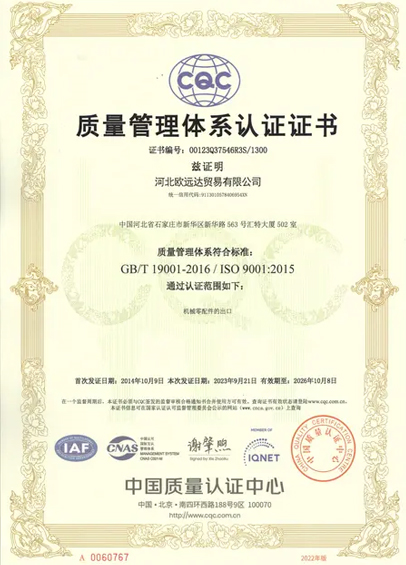Mobile:+86-311-808-126-83
Email:info@ydcastings.com
Spanish
oil pump impeller
Understanding the Oil Pump Impeller A Key Component in Fluid Dynamics
The oil pump impeller serves as a critical component in various mechanical systems, primarily in the automotive and industrial sectors. Its primary function is to move oil efficiently through the system, ensuring proper lubrication and cooling of engine components, which is essential for optimal performance and longevity.
Function and Design
An impeller is typically a rotating component of a pump that transfers kinetic energy from a motor to the fluid. In oil pumps, the impeller draws oil from the sump and pushes it into the engine or lubrication system through centrifugal force. The design of the impeller is crucial, as it directly affects the flow rate and pressure of the oil being circulated.
Most oil pump impellers have a streamlined shape to minimize resistance and maximize flow. The number of blades, their angle, and the diameter of the impeller are all factors that determine the efficiency of the pump. Manufacturers often utilize advanced materials that can withstand high temperatures and pressures, enhancing the durability and performance of the impeller over time.
Types of Oil Pump Impellers
There are primarily two types of impellers used in oil pumps centrifugal and positive displacement.
oil pump impeller

1. Centrifugal Impellers These are the most common type used in automotive oil pumps. They convert mechanical energy into kinetic energy, allowing for high flow rates at relatively low pressures. Centrifugal impellers are efficient and can easily handle varying oil viscosities.
2. Positive Displacement Impellers These create a fixed volume of oil discharge with each rotation, making them suitable for applications requiring consistent flow regardless of pressure changes. They are often used in hydraulic systems and certain specialized engine applications.
Importance in Engine Performance
The performance of an oil pump impeller directly impacts the overall efficiency of an engine. Insufficient oil flow can lead to inadequate lubrication, causing increased friction and wear on engine components. This, in turn, can lead to overheating and, ultimately, engine failure. An effective oil pump impeller ensures that oil reaches critical components at the right pressure and volume, helping maintain optimal operating conditions.
Maintenance and Replacement
Regular maintenance of oil pumps, including the impeller, is essential for prolonging vehicle life. Technicians often recommend inspecting the impeller during routine oil changes or engine services. Signs of wear, such as unusual noise or reduced oil pressure, may indicate the need for replacement.
In conclusion, the oil pump impeller plays a pivotal role in fluid dynamics within an engine system. Its ability to efficiently move oil is critical not just for lubrication, but also for maintaining performance and preventing damage. Understanding its function and recognizing the signs of wear can help ensure the longevity of any engine, making the impeller a vital focus in automotive maintenance.











